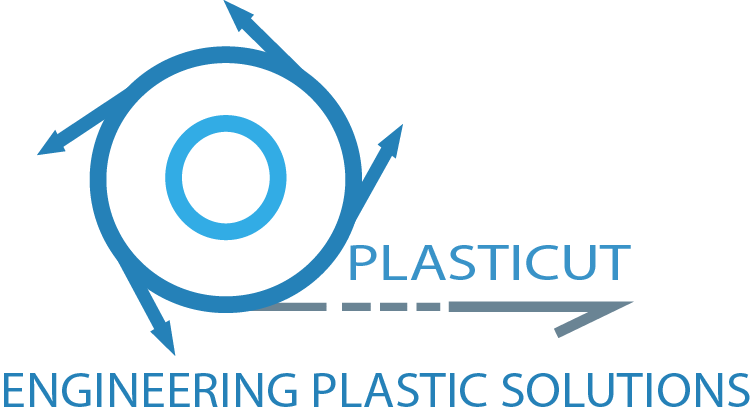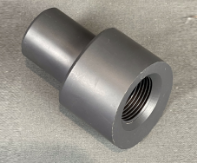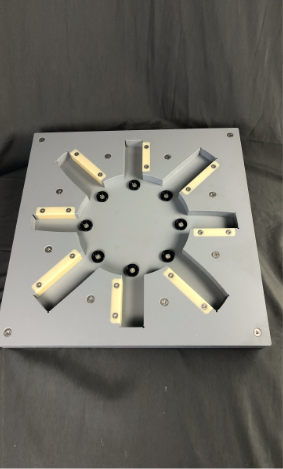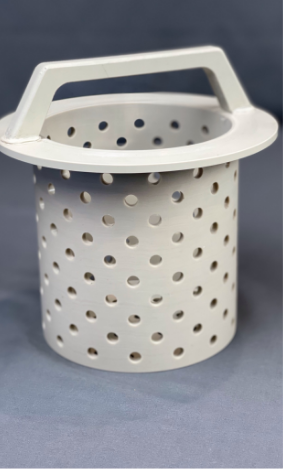A German chemist, Eugen Bauman, made PVC by accident in 1872. When he exposed a tube of vinyl chloride gas to sunlight, the result was a white solid referred to as PVC. Another German chemist, Friedrich Klatte, obtained a pattern for polymerizing PVC with sunlight in 1913.
By World War I, Germany produced several rigid and flexible PVC products. They replaced corrosion-resistant metals. The versatile plastic is durable, affordable, and highly resistant to chemicals and moisture. PVC has gained widespread use in numerous applications and industries.
It meets the specific needs of diverse applications, plays a pivotal role in maintaining the world’s infrastructure, and ensures the efficient function of some essential systems. PVC pipes are available in different types. Understanding the variations is necessary when selecting the kind of pipe for a project.
What Is PVC?
Polyvinyl chloride (PVC) combines vinyl chloride monomers to make a synthetic plastic polymer. The result is a durable and versatile material molded and shaped into various forms, including pipes. The single chloride monomers are the building blocks. A polymer process combines them to form long chains.
Incorporating various additives in the formula enhances its properties. They include pigments for coloration, plasticizers to modify flexibility, and stabilizers to prevent degradation. There are two broad categories of PVC – rigid and flexible. Rigid PVC is a stiff, cost-effective plastic resistant to corrosive environments, chemicals, weather, water, and impact.
Other terms for rigid PVC are uPVC, PVC-U, and UPVC. Adding compatible plasticizers to PVC forms the flexible type. It lowers the crystallinity. The plasticizers act as lubricants, creating a much more flexible and clearer plastic. PVC-P is another term for flexible PVC.
Applications
The adaptability of PVC to a wide range of applications solidifies its status as a foundational component in modern industry, construction, and infrastructure. The affordability, corrosion resistance, and strength properties continue to make it a top option in various sectors, ensuring reliable and efficient fluid drainage and transport.
The corrosive resistance ensures safe and clean water delivery in commercial and residential water supply systems. PVC pipes carry sewage and wastewater from buildings, prevent flooding, and maintain sanitation. Landscaping and agriculture benefit from PVC pipes for irrigation as they transport water to gardens and crops.
They withstand the corrosive effects of chemicals and ensure proper filtration and circulation. Among the typical applications are
- Chemical processing
- Drainage systems
- Electrical conduits
- Fire protection systems
- Fire sprinkler systems
- Industrial transport
- Industrial plumbing
- Residential plumbing
- Irrigation
- Septic systems
- Swimming pool plumbing
- Stormwater drainage.
Key Advantages of PVC
Compared to other piping materials, PVC is cost-effective. Combined with its durability, it is an excellent value for the money. PVC inherently resists corrosion, which is essential in applications that transport fluids. It ensures the integrity of the pipes and the purity of the fluids.
PVC is recyclable and, therefore, environmentally friendly. It is safe to use as an electrical conduit. PVC provides insulation for electrical wiring and reduces the risk of electrical hazards. The smooth surface ensures fluids flow efficiently and reduces maintenance requirements. Because of its many benefits, PVC is a popular option for various applications. The key advantages include
- Affordability
- Corrosion resistance
- Cost-effective installation
- Durability
- Environmental friendliness
- Lightweight
- Low maintenance
- Non-conducive
- Resistance to biological growth
- Resistance to deposits and scaling
- Versatility
- Wide availability
Summary
PVC is a high-strength material widely used for applications like wire and cable insulation, medical devices, and pipes. Products made of PVC last a long time. It is a recyclable material. PVC is a durable material resistant to weathering, which is why it is ideal for construction.
Flexible and rigid PVC replaces traditional materials like metal, concrete, and wood in various applications. It is generally less expensive to install compared to other materials. Highly resistant to UV rays, chemicals, and moisture contributes to its longevity and reduces replacement and repair costs. Durability is among the main advantages that make it popular for various applications.
For all PVC requirements, including PVC cut to size and PVS sheets, contact Plasticut.



